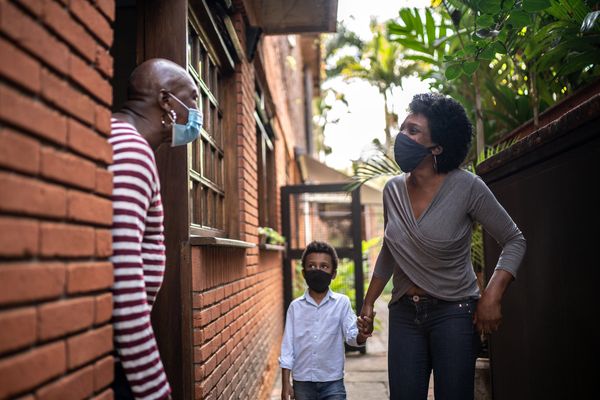By Deva Taylor, SWHR Science Department Intern
Every year, an estimated 300,000 pregnant women in the United States experience domestic violence—and that number is believed to be vastly underreported.[1] The period from just before conception to just after birth is an especially dangerous time for a woman to be subject to violence. The effects of violence, both on the mother and the fetus, can be traumatic, physically and emotionally, and can be felt for decades after the abuse has stopped.
Domestic violence can be more than physical harm; the abusive partner has an array of tools that include mental and emotional manipulation, sexual assault, reproductive coercion, financial control and much more. It is an especially precarious situation for the victim when pregnancy is added to the equation, as the majority of pregnancy-related murders are committed by intimate or formerly intimate partners.[2]
Reproductive coercion—when the abuser tries to control their partner's ability to become pregnant—comes in various forms, including refusal to wear a condom, destroying birth control pills, or removing IUDs, patches, and implants.[3]
According to Audrey Bergin, who heads the Domestic Violence Program at Northwest Hospital in Maryland, forced sex is often not reported because the victim experiences it so frequently that she (or he) believes it to be normal. That makes the 10.3 million women who have reported some type of reproductive coercion an even more terrifying number.[4]
"Unintended pregnancy makes it much more difficult for women to leave their abusive relationships because of financial, familial and cultural pressures that require the father to be a part of the child's life," Bergin said.
Though some studies show that pregnancy can lead to a decrease in violence (from about a 15 percent prevalence to a 10 percent prevalence of domestic violence),[6] a pregnancy announcement still can result in a significant increase in a woman's risk of severe physical abuse or homicide, said Bergin.
Abuse of any kind can cause negative health effects for the mother, including frequent urinary tract and cervical infections,[1] substance abuse,[4] depression, anxiety, and even post-traumatic stress disorder.[7] Studies have found that pregnant women experiencing domestic violence are nine times more likely to develop a mental health disorder than the general population,[1] not to mention the numerous chronic diseases, such as asthma, cardiovascular disease, joint disease and irritable bowel syndrome that can result from the violence and heightened levels of stress.[8]
But the effects of domestic violence during pregnancy don't stop there. Delayed prenatal care due to violent or controlling partners, as well as physical assault and maternal substance abuse, can lead to a range of problems for the fetus: among them, intrauterine growth restriction, fetal alcohol syndrome, low birth weight,[4] preterm birth and even death.[1] Additionally, low birth weight and preterm birth can cause dozens of problems for the infant's development, including cognitive, academic and behavioral deficiencies; motor and physical disabilities like cerebral palsy; psychological issues; and an increased risk for sudden infant death syndrome.[1]
Despite the prevalence of negative outcomes associated with violence during pregnancy, less than half of all health care providers screen their patients for domestic violence, citing reasons including a lack of training, discomfort broaching the subject with their patients, and time constraints during visits.[1] Health care providers are often the first people able to offer support and care for victims of domestic violence,[3] so it's imperative that they screen before, during and after pregnancy—not just once, but regularly.
In at least one study of family planning clinics, screening and intervention led to a 71 percent decrease in the frequency of reproductive coercion.[9]
Advocacy for victims and training for health care providers must become a priority if we are to help the women who suffer in silence every day. Women and their children feel the effects of abuse for years after it ends—but they shouldn't have to. Let's raise awareness of the effects of domestic violence on pregnancy, and in doing so, help women obtain a healthier, more stable life. They may not be able to speak out, but we can.
The Society for Women's Health Research recently launched a campaign, Beyond the Bruises, to educate the public on the link between domestic violence and chronic diseases. To learn more about the campaign and how you can help bring attention to this often unrecognized link, visit swhr.org and follow us on Twitter@SWHR.
References:
1. Bailey BA. Partner violence during pregnancy: prevalence, effects, screening, and management. International Journal of Women's Health. 2010;2:183-197.
2. Cheng A, Horon IL. Intimate partner homicide among pregnant and postpartum women. Obstetrics and Gynecology. 2010;115(6):1181-1186.
3. Intimate partner violence. Committee Opinion No. 518. American College of Obstetricians and Gynecologists. Obstet Gynecol 2012;119:412-417.
4. Deshpande NA, Lewis-O'Connor A. Screening for Intimate Partner Violence During Pregnancy. Reviews in Obstetrics and Gynecology. 2013;6(3-4):141-148.
5. Martin-de-las-Heras S. Unintended pregnancy and intimate partner violence around pregnancy in a population-based study. Women and Birth. 2015;28:101-105.
6. Van Parys A-S, Deschepper E, Michielsen K, Temmerman M, Verstraelen H. Prevalence and evolution of intimate partner violence before and during pregnancy: a cross-sectional study. BMC Pregnancy and Childbirth. 2014;14:294. doi:10.1186/1471-2393-14-294.
7. Fonseca-Machado MO, Alves LC, Freitas PS, Monteiro JCS, Gomes-Sponholz F. Mental health of women who suffer intimate partner violence during pregnancy. Invest Educ Enferm. 2014;32(2): 291-305.
8. CDC. Intimate partner violence: consequences. Accessed at: https://www.cdc.gov/violenceprevention/intimatepartnerviolence/consequences.html on October 2, 2015.
9. Miller E, Decker MR, McCauley HL, et al. A family planning clinic partner violence intervention to reduce risk associated with reproductive coercion. Contraception. 2011;83(3):274-280. doi:10.1016/j.contraception.2010.07.013.
The Society for Women's Health Research is the thought leader in the study of sex differences, dedicated to transforming women’s health through science, advocacy and education.
Follow Society for Women's Health Research on Twitter: www.twitter.com/SWHR
MORE:







